How Hybrid Inverter for Solar System Enhance the Efficiency of Solar Power Systems
As the world increasingly shifts towards sustainable energy solutions, solar power systems have emerged as a prominent choice for reducing reliance on fossil fuels and lowering energy costs. A key component in optimizing the performance and efficiency of these solar power systems is the hybrid inverter for solar system. This advanced technology not only maximizes energy production but also enhances overall system efficiency. In this article, we will explore how hybrid inverters contribute to the efficiency of solar power systems and the benefits they bring to both residential and commercial applications.
Understanding Hybrid Inverters for solar system
A hybrid inverter for solar system is a versatile device that combines the functionality of a traditional solar inverter with that of a battery inverter. Unlike conventional solar inverters, which only convert the direct current (DC) generated by solar panels into alternating current (AC) for household use, hybrid inverters are designed to manage and optimize multiple energy sources. They facilitate the integration of solar energy with energy storage systems (batteries) and the electrical grid, providing a seamless and efficient energy management solution.
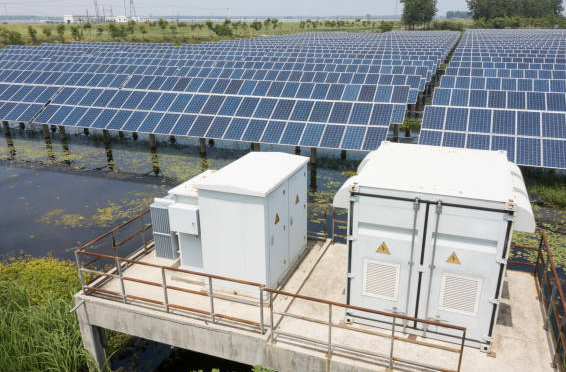
Maximizing Energy Utilization
One of the primary ways hybrid inverters enhance the efficiency of solar power systems is by optimizing energy utilization. Traditional solar inverters typically direct all the solar energy generated directly to the grid or household loads, with any excess energy potentially going to waste. In contrast, hybrid inverters for solar system intelligently manage energy flow by storing surplus energy in batteries. This stored energy can then be used during periods of low solar production or high energy demand, ensuring that no energy is wasted and that energy needs are consistently met.
By enabling energy storage, hybrid inverter for solar system help homeowners and businesses make the most of their solar investments. They allow for the use of solar power during times when the sun is not shining, such as at night or on cloudy days. This capability significantly reduces reliance on grid electricity and maximizes the utilization of solar-generated energy.
Enhancing Energy Independence
Hybrid inverter for solar system play a crucial role in enhancing energy independence. By integrating battery storage with solar power systems, they provide a reliable backup power source during outages or periods of high demand. This feature is especially valuable in regions with unreliable grid power or frequent power interruptions. With a hybrid inverter, users can store energy during peak sunlight hours and draw from their battery reserves when the grid is down or when solar production is insufficient.
This enhanced energy security not only provides peace of mind but also contributes to overall system efficiency. Users are less dependent on grid power, which often comes with fluctuating rates and potential supply issues. As a result, hybrid inverters help reduce energy costs and ensure a more stable and reliable power supply.
Optimizing Grid Interaction
Hybrid inverters also improve the efficiency of solar power systems by optimizing grid interaction. Many hybrid inverters come equipped with advanced energy management systems that can regulate the flow of electricity between the solar panels, batteries, and the grid. This capability allows users to take advantage of time-of-use rates, where electricity prices vary throughout the day.
For instance, during periods of low electricity rates, excess solar energy can be stored in batteries, while grid power can be used during peak hours when rates are higher. This strategic energy management helps users save on energy costs and ensures that the solar system operates at peak efficiency.
Increasing System Lifespan
The efficiency of solar power systems is also impacted by the longevity of their components. Hybrid inverters contribute to this aspect by providing balanced energy management and reducing stress on individual system components. By optimizing energy storage and usage, hybrid inverters help to extend the lifespan of both the solar panels and the batteries.
Without a hybrid inverter, the batteries might experience frequent deep discharges or overcharging, which can shorten their lifespan. Hybrid inverters manage battery charging and discharging more effectively, ensuring that the batteries are used within their optimal range. This balanced approach not only enhances efficiency but also reduces maintenance costs and the need for premature replacements.
Integrating with Smart Technology
Modern hybrid inverters often come with smart technology features that further boost the efficiency of solar power systems. These features include real-time monitoring, remote access, and automated energy management. Users can track their energy production and consumption patterns, receive performance insights, and make adjustments to optimize their system’s performance.
Smart hybrid inverters can also integrate with home automation systems, allowing for more sophisticated energy management. For example, users can program their inverters to prioritize energy storage during low-cost periods and use stored energy during peak demand times. This level of control enhances overall efficiency and ensures that the solar power system meets the specific needs of the user.
Hybrid inverters are a game-changer in the realm of solar power systems. By combining the functionalities of traditional solar inverters and battery inverters, they maximize energy utilization, enhance energy independence, optimize grid interaction, and extend system lifespan. Their ability to store and manage energy efficiently ensures that solar power systems operate at their highest potential, providing significant benefits in terms of cost savings, energy security, and overall efficiency.
As solar technology continues to advance, hybrid inverters will likely play an increasingly vital role in driving the adoption of renewable energy solutions. Their integration into solar power systems represents a step forward in achieving a more sustainable and efficient energy future.
Contact us
- Email:[email protected]
- Tel: +86 13651638099
- Address: 333 Fengcun Road, Fengxian District, Shanghai
Get A Quote Now!
Related product links are available directly
Site storage products:Site storage products 归档 – (energystoragecontainer.com)
Lithium Battery:Lithium Battery 归档 – (energystoragecontainer.com)
Read more
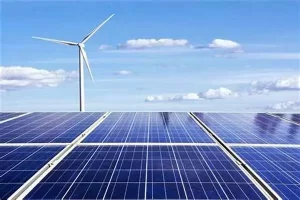
Unveiling Photovoltaic+Energy Storage: Four Major Application Scenarios Leading the Future of Energy
In this way, the energy landscape is evolving, and one of the most thrilling developments in renewables is the integration of photovoltaics energy storage.
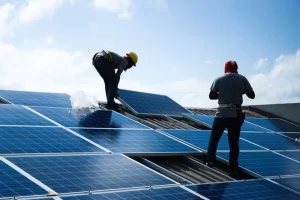
From Theory to Practice: Four Methods for Estimating Photovoltaic Power Generation
Photovoltaic power generation has become an essential part of modern energy solutions, particularly in home solar systems and distributed power applications
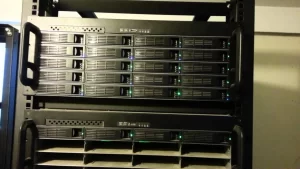
Rack-Mounted Lithium Iron Batteries: Creating Efficient and Reliable Energy Storage Solutions
When it comes to modern energy solutions, rack-mounted lithium iron batteries are taking center stage in a variety of industries. Whether you’re powering data centers, stabilizing energy for households, or keeping critical systems online at 5G base stations, these batteries have become the unsung heroes of our electrified world.
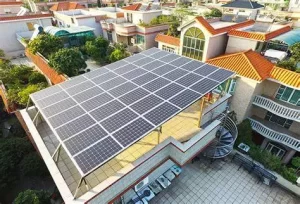
Late Night Energy Saving Tips: How to Maximize Electricity Savings During Off-Peak Hours
With rising energy costs, homeowners are increasingly exploring innovative ways to save on their electricity bills. One effective approach is utilizing off-peak hours—times when electricity rates are significantly lower due to reduced demand.
